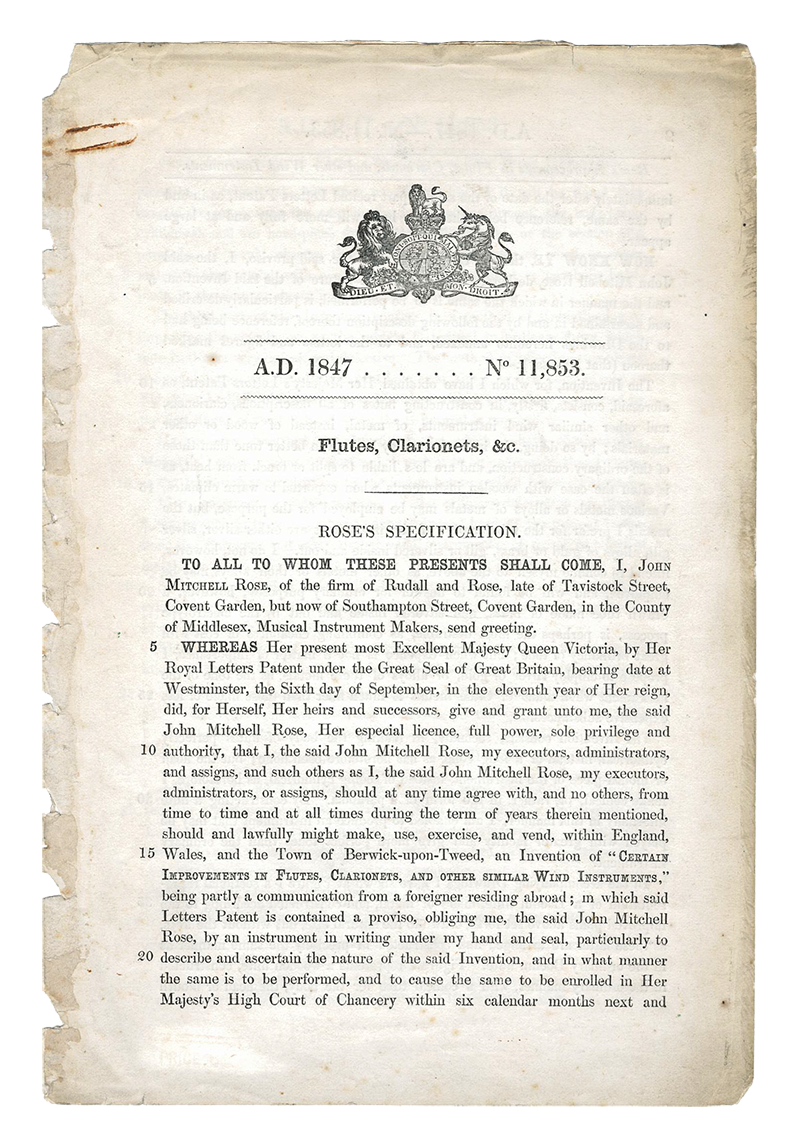Rudall Carte & Co, a brief history
Rudall, Carte & Co was created in 1872, however the origins of the company go back to 1822, when the flautist George Rudall and flute maker John Mitchell Rose set up Rudall and Rose in London. A former pupil of Rudall's, Richard Carte joined the company. At this time amateur music making and in particular flute playing saw huge growth in Britain. The company gained a reputation for quality manufacture and innovation driven mainly by Richard Carte who had close ties with the profession. The business undertook a substantial expansion in the 1850s, when it became known as Rudall, Rose and Carte.
The business continued to grow and with the acquisition of London based musical instrument manufacturer Thomas Keys company, it was able to expand the product offering to include other woodwind instruments, oboes, clarinets, bassoons and saxophones, and enter into the brass instrument market with cornets, sax-horns, trumpets and trombones. Thomas Keys had been a key supplier to the military bands in the UK and the company benefited from the expanded manufacturing resources, product range and increased turnover through the military business..
As well as many innovations of their own the company had the foresight to form an association with Theobald Boehm and adapted and developed his ideas and designs and for which Rudall & Rose held the British patent (As seen below).
From 1872 the company was known as Rudall, Carte & Co. In this phase was the preeminent supplier of flutes to the leading professionals of the day in the UK and also to British territories around the world. Instruments from this period continued to be used in orchestras pre and post WWII. Many instruments are still in use and are much sought after. In 1883 handed control of the company to his son, Henry, and the partnership ended in 1883. Later Henry Carte sold the company to a group of new owners who took the company to a limited company status in 1911. The company continued to be innovative with design and materials through this difficult period up until WW1.
After WW1 the company suffered from changes to the product requirements away from the company’s core products. There was increased competition from overseas coupled with high material costs, inefficient manufacturing, poor access to some markets and high import tariffs into others. The company was sold to Boosey & Hawkes early in WWII. Post war the company was a wholly owned subsidiary of Boosey and Hawkes.Flute manufacture was in decline and this lead to some of the craftsmen who were previously in Rudall Carte who felt uncomfortable with the corporate culture and comparative volume nature of the manufacture setting up The Flutemakers Guild in 1961.
Rudall Carte continued as a distributor of woodwind, brass and bowed instruments and accessories from many manufacturers around the world, the most significant supplier was the Volkseigener Betrieb/ VEB group of factories in what was then East Germany. In 1985 Boosey & Hawkes decided to close the company and absorb the remaining activities and some of the key staff into its operations on the same site in Edgware Middlesex.

